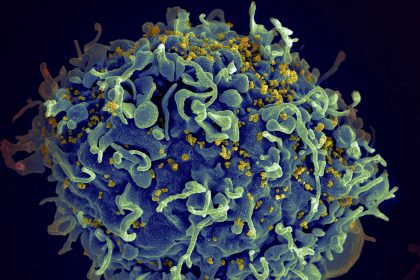Femtech Company Sees Surge in Demand for Birth Control

The coronavirus pandemic has sparked the emergence of Femtech, a category of software, diagnostics, products, and services that use technology to focus on women’s health.
Now Nurx, the largest digital practice for women’s health, is seeing a continued surge in requests for at-home delivery of birth control after COVID-19, during which U.S. birth rates dropped to their lowest point in more than a century.
“Birth control is essential health care. More than 19 million women in need, in the U.S., live in contraceptive deserts, and around 1.5 million live in a county without a single health center offering the full range of methods,” said Varsha Rao, CEO of Nurx.
When the pandemic lockdowns began in March 2020, Nurx said they immediately saw a 50% spike in birth control requests, and 40% for emergency contraception.
“At the end of their one-year birth control prescriptions these patients renewed their birth control at exceptionally high rates, so we see no signs of a baby boom any time soon,” said Rao.
Nurx delivers most types of birth control, from pills, rings, shots, and patches, and now offers an overnight home delivery of the morning-after pill, an emergency contraceptive that if taken within three days of unprotected sex can help reduce chances of pregnancy.
They also provide deliveries of other medications, such as PrEP, skin care and anti-aging treatments, migraine treatments, preventive medicines for HIV, and at-home testing kits for HIV, HPV, herpes, sexually transmitted infections, and COVID-19. It usually takes about a week, often less, for patients to receive their medication or tests.
“We know that the option to get STI tests, PrEP, emergency contraception, herpes treatment or birth control from the privacy of home is hugely important for people who may experience shame and stigma in in-person settings,” said Rao.
Patients request care online by answering questions about their health history, then a medical provider licensed in the patient’s state then determines appropriate care.
Nurx also offers educational materials from a health blog about topics like why a woman might experience unusual bleeding on birth control, breastfeeding information for the best milk supply, or the science of sun protection.
When it comes to costs, most of Nurx’s birth control patients with insurance will have a $0 copay for their medication, and out-of-pocket prices for birth control start at $15/month.
“In general, our patients find that seeking care this way is more affordable than in-person care. In addition to our low prices, they save money on incidental costs like paying for transportation, parking, or childcare, or taking time off of work for an appointment. We send medication or tests with free shipping,” said Rao.
From periods, to pregnancy, to menopause, Femtech providers like Nurx, and others like Flo or Ava, empower women to educate themselves and take control of their health through tech products which offer services aimed at fertility solutions, period tracking, pregnancy, sexual wellness, and reproductive health care.
However, Antonia Riera, an expert on investments happening in Femtech from Goldman Sachs, said that these products are still in the early stages of gaining financial traction.
“Femtech itself has yet to see some of those really large-scale successes, and by that, I mean large levels of investments, IPOs, etc.. We have yet to see that in Femtech more specifically, and that should come with time,” said Riera.























